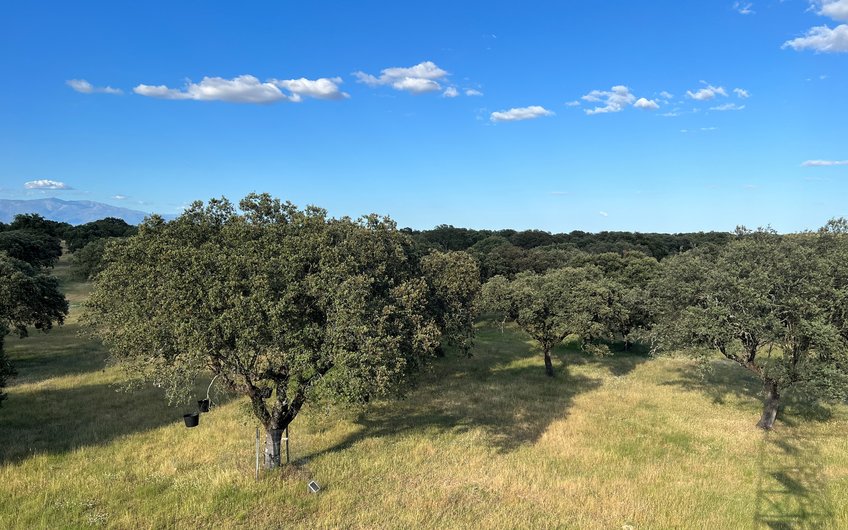
Majadas de Tiétar
a tree-grass ecosystem research station
An internationally well-known research station that has been continuously measuring CO2 fluxes, meteorological variables, vegetation indices, soil respiration, sap flow, weight changes of lysimeters, and many more. The station is maintained through collaborative efforts from Fundación CEAM, the Spanish National Research Council (CSIC), University of Extremadura, and Max Planck Institute for Biogeochemistry. Many other more teams and scientists have conducted diverse work here.

Mission
The availability of nutrients like nitrogen (N) and phosphorus (P) is important for every living organism on Earth. Due to human activities, especially combustion processes large amounts of N are transported into the atmosphere and ecosystems. Therefore, ecosystems receive additional N but no other nutrients. We are investigating if the addition of N alone will lead to deficits in other nutrients and thus impact the functioning of ecosystems. To understand this, we established three co-located eddy covariance (EC) towers at Majadas de Tiétar, a Mediterranean tree-grass ecosystem. Additionally, we set up a large-scale ecosystem experiment. We fertilized two tower areas with N and N + P, respectively, with the central tower area served as the control treatment.
Impacts
This knowledge gap on impacts of nutrients on ecosystem-scale carbon and water exchanges owes to the small spatial scales of experiments that manipulate nutrient availability, which have typically ranged from individual leaves and plants in mesocosm experiments to the order of a few tens of meters in small plot studies. The data from Majadas de Tiétar have helped quantify the effects of concomitant increasing N availability, increasing N:P imbalance on ecosystem functioning and on water use efficiency, and many more in this and other semi-arid tree-grass ecosystems.
